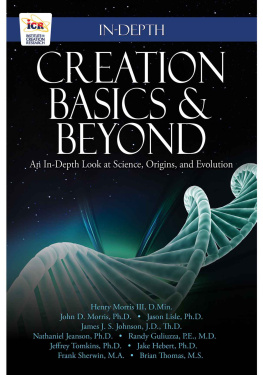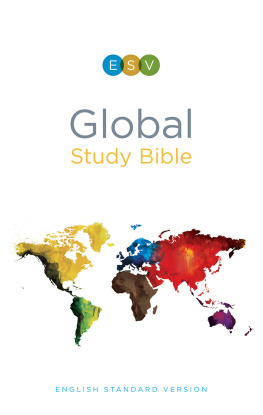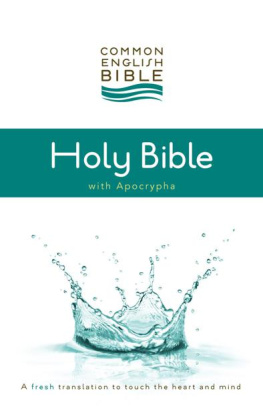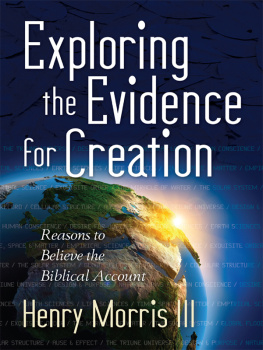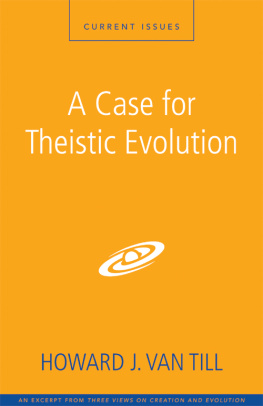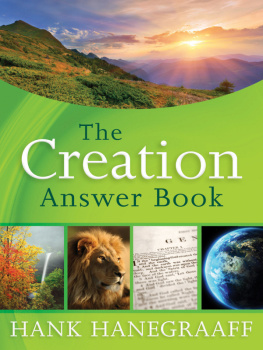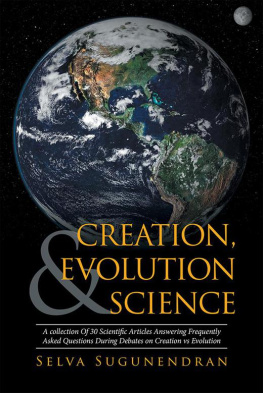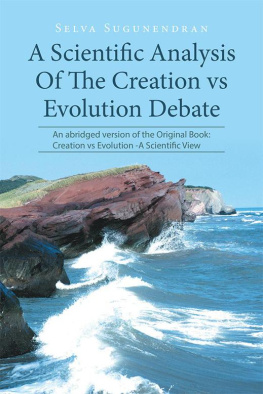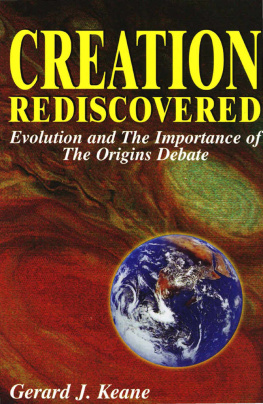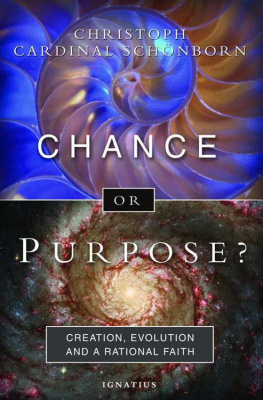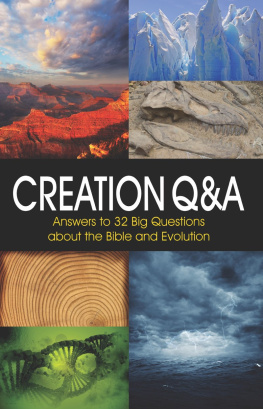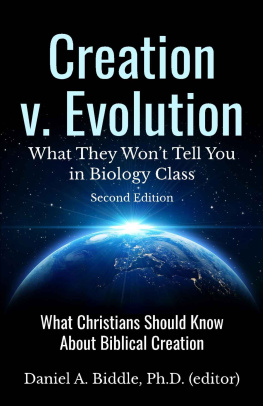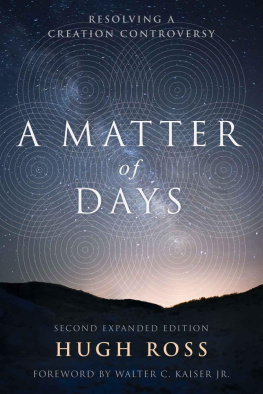



Dallas, Texas
www.icr.org
CREATION BASICS & BEYOND
An In-Depth Look at Science, Origins, and Evolution
Copyright 2013 by the Institute for Creation Research. All rights reserved. No portion of this book may be used in any form without written permission of the publisher, with the exception of brief excerpts in articles and reviews. For more information, write to Institute for Creation Research, P. O. Box 59029, Dallas, TX 75229.
Unless otherwise specified, all Scripture quotations are from the New King James Version.
ISBN: 978-1-935587-33-0
Please visit our website for other books and resources: www.icr.org
TABLE OF CONTENTS
Introduction Worldview: God Determines Truth or Man Determines Truth? 1. Genesis and the Character of God 2. Genesis Is Relevant to Christian Doctrines 3. Day-Age Theory: A Day Late and a Scholar Short 4. Gap Theory: A Formless and Void Error 5. Genesis Is Narrative History, Not Hebrew Poetry 6. Genesis Data Add Up to a Young Earth 7. No Death Before Adam Sinned 8. Evolution Is Logically Impossible 9. How Should We Then Interpret Genesis? 10. Fossil Forensics Disprove Darwin 11. Evolutionists Flunk Basic Forensic Science 12. Evolutionist Vocabulary on Cellular Communication Displays Faulty Logic 13. Only Biblical Creation Proves God Loves You Personally Biology: Created Kinds or Common Ancestry? 14. All-or-Nothing Unity in the Human Body 15. The Mistakes in Evolutionary Arguments Against Lifes Design 16. Unmistakable Evidence for Gods Design: Cells Lead the Way 17. The Origin of Species: Did Darwin Get It Right? 18. Does Biological Similarity Prove Evolutionary Ancestry? 19. The Erosion of Genes Confirms Genesis History 20. Is the Evolutionary Tree of Life Real? 21. The Junk DNA Scam 22. The Origin of Predator/Prey Relationship and Parasites 23. Cain, His Wife, and the Origin of Races 24. Ape-Man or Image of God? 25. Chromosome 2: Fusion or Not? 26. The Mystery of Lifes Beginning Geology: Recent Flood or Millions of Years? 27. The Flood Is the Key 28. The Flood Was Global According to Scripture 29. The Flood Was Global and Catastrophic According to Geology 30. The Young Earth in Scripture 31. The Young Earth in Geology 32. The Real Nature of the Fossil Record 33. Do Radioisotope Dating Methods Prove an Old Earth? 34. Was There an Ice Age? 35. Do Seafloor Sediment and Ice Core Data Prove Long Ages? 36. Catastrophic Plate Tectonics 37. Developing a Sensible Approach to Human Origins Research Part 1: Fossils and Bias 38. Developing a Sensible Approach to Human Origins Research Part 2: Understanding the Fossils Dinosaurs and Man: Walked Together or Ruled Apart? 39. Dinosaurs and the Bible 40. Original Tissue Fossils Cannot Be Millions of Years Old 41. Were There Really Feathered Dinosaurs? 42. How Do They Date a Fossil Anyway? 43. Dinosaurs and Dragon Legends Astronomy: Created Cosmos or the Big Bang? 44. A Big BangReally? 45. The Age of the CosmosWhat You Have Not Been Told 46. Could the Laws of Physics Have Created the Universe? 47. Distant Starlight in a Young Universe 48. Do UFOs Exist? 49. Do Other Universes Exist? Conclusion Appendix: The Scientific Case Against Evolution Contributors Credits Index
INTRODUCTION
Creation or evolution? The debate on origins has a tendency to stir up passion for those on either side of the issue. If we have been created by God and made in His image, then this will have implications for the way we live our lives. Likewise, if we are the result of a long process of evolution, a product of the mindless forces of nature, then this too will naturally influence our thinking of how we should live. Our thoughts on morality, science, religion, politicsall of these will be strongly affected by our position on origins. The creation-evolution debate is therefore one of the most important issues of our time.
For the Christian, the motivation to study origins is even stronger. If the Genesis account of creation is untrue, then it casts doubt on the rest of the Bible. After all, the only way a Christian knows that Jesus, the Son of God, died on the cross to pay the penalty for sin and rose from the dead is from Scripture. But if the Bible cannot be trusted, then the Christian cannot truly know that he or she is saved. If the Bible is false on its very first page, then how can any rational person have confidence in what follows from it? Indeed, there have been many people who want nothing to do with Christianity because they believe the Bible to be untrustworthy. And this all begins by doubting Genesis.
For these reasons and many others, it is extremely important for all people to know the truth about origins. This doesnt mean that everyone needs to get a doctorate in science, but it is helpful to know a few of the basic lines of scientific evidence that surround the creation-evolution controversy. It is also very useful to understand the basic theology and moral implications of creation. It is for these reasons this book is so timely. In the following chapters, we provide the fundamental big picture facts regarding the origins debate in laymens terms.
Although this book is written primarily for non-experts, it was written and reviewed by experts. This helps ensure that the book is as accurate and up to date as is humanly possible. Every contributing author is a researcher/speaker/writer in full-time apologetics ministry at the Institute for Creation Research. The writers include five Ph.D. scientists (two in biology, one in physics, one in astrophysics, one in geology), a medical doctor/professional engineer, two science writers with masters degrees in science, and two writers with doctorates in theology.
Although the authors are capable of writing highly technical, detailed papers in their respective fields, they have taken great care to make this book introductory in nature. No extensive previous science or Bible knowledge is required on the part of the reader. The chapters have been kept intentionally short and readable. At the same time, the chapters do go into sufficient depth so that the reader can have confidence in the arguments presented. Some chapters present brand-new research. Others give an overview of previously established scientific facts.
The book is arranged into five major sections, each with a number of small chapters. The chapters are largely independent, so they may be read in any order, but they have been organized into a flow that will make sense to those readers who like to read books from the first page to the last.
The first section deals with biblical and worldview issues, tackling questions such as: Does the origins debate really matter? What about hybrid views that claim God created using evolution, or that He created progressively over millions of years? Can Genesis be taken as a parable without doing any harm to Christian doctrine? Does the Bible really teach a young earth? Are creation and evolution equally compatible with the methods of science? Is there a difference between operational science and forensic science? And does this topic really make a difference in our lives?
The second section deals with biology. Is it possible for the human body to have evolved in a gradual fashion? What about bad designs in nature? Does DNA support creation or evolutionand what about junk DNA? Are we really genetically similar to chimpanzees or other forms of life? Can life really come from non-life? Where did the different races of people come from?
Next page
